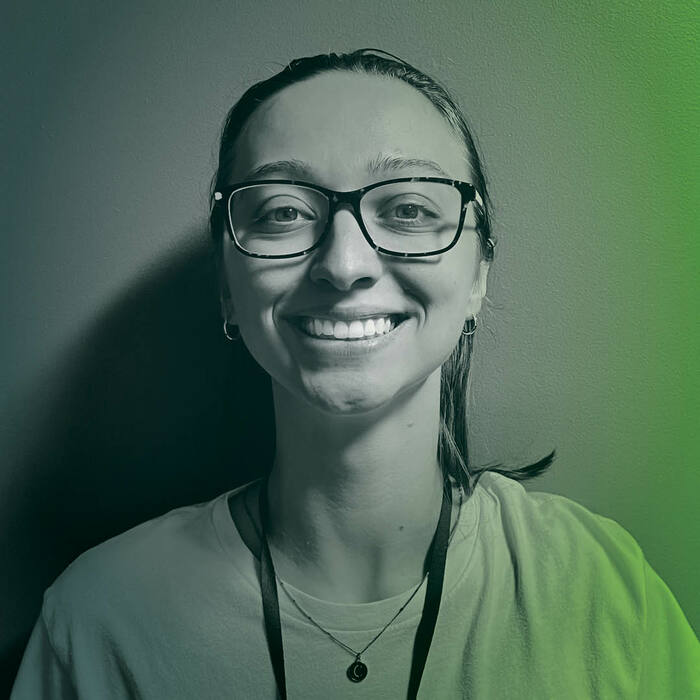
What is your position with Ellipsis?
I’m a youth care worker. I provide aid to each unit and help run our respite program.
How long have you worked here?
I’ve worked with Ellipsis since September of 2021.
Have you had any other roles/jobs during your tenure with Ellipsis?
I’ve always been a youth care worker, but that in and of itself entails multiple roles. Sometimes, I’m a chef; sometimes, I’m the kids’ personal taxi driver. I do whatever I can to help our youth.
What drew you to work at Ellipsis?
Kids in shelters are some of the strongest people I’ve ever met. They need reliable people to have their backs, and I knew I could be that for them.
Can you recall a moment (during your career with Ellipsis) when you felt like you were in exactly the right place, doing exactly what you should be doing? What was that like?
There are so many specific moments. But every time a kid trusts me enough to open up about their struggles or mental health, asks me for advice, or gives me the opportunity to change their perspective, I know I’m in the right place. It’s very rewarding. I think it’s rare for someone to say they actually love their job, but I know this field is meant for me.
What are some of the more challenging aspects of this job?
A challenging aspect for me is recalling that adverse behaviors or unhealthy coping mechanisms are acquired and instructed through real experiences. From my perspective, children are not inherently bad. Rather, they struggle through tough experiences and learn from them. Often, a youth's outburst may seem directed towards a staff member, but in reality, they are likely holding onto anger due to other circumstances and haven’t developed healthy coping mechanisms.
What are some of the rewarding aspects of the job?
One of my favorite parts is when we celebrate a kid’s birthday and how excited they get to have their own cake. You’d be surprised at how many kids have never had their own birthday celebration. Another favorite is when a kid comes in with their emotional walls all the way up, and they eventually trust staff enough to talk about and process vulnerable things. It’s a huge reward to see positive changes in behavior. Sometimes, they just need to get things off their chest.
Why is it important to have residential programs in communities and qualified people working in them?
It is so important. Most of the time, it is rare we have an open bed for more than a day or two. So many kids need help, and they shouldn’t have to do it alone. As staff, we have to put ourselves in a kid’s shoes and do whatever we can to make their life a little better.
What is a misconception people may have about mental health treatment? How do you dispel that?
A misconception about mental health is that it is perceived as being weak if you’re struggling and ask for help. No one asks to be depressed, anxious or have negative thoughts. If you could stop it yourself, you would. Sometimes, all you need is a little help and encouragement. This can be dispelled by educating yourself before you make assumptions.
If there’s anything else you’d like to add about your role, please feel free to do so!
I have the best coworkers I could ever ask for. I’ve met some of my best friends here.
